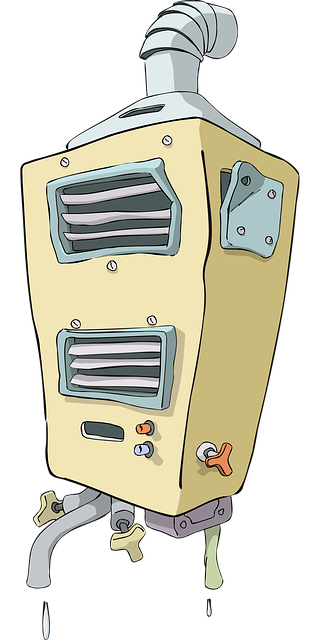Gas water heaters usually last 8-12 years but show signs of needing replacement after this period. Common issues include leaks, tank sediment build-up, pilot light failures, and inefficiencies leading to energy waste and costly repairs. If you experience inconsistent hot water supply, unusual noises, frequent repairs, or sudden energy bill spikes, it's time to consider replacing your water heater podcast for continued efficiency and safety.
Choosing between gas and electric water heaters is a significant decision, especially when considering longevity. While gas heaters typically offer faster heating times, electric models are known for their energy efficiency and longer lifespans. This article delves into the average lifespan of each type, explores common issues indicating the need for a new water heater (e.g., increased energy bills), and examines environmental factors that affect durability. By the end, you’ll understand which option may be the better investment in the long run.
- Gas Water Heaters: Lifespan and Common Issues
- – Discussion on average lifespan of gas water heaters
- – Signs it's time for a replacement (e.g., increased energy bills, frequent repairs)
Gas Water Heaters: Lifespan and Common Issues

Gas water heaters have an average lifespan of 8-12 years, though this can vary depending on factors like usage and quality of maintenance. While they offer the advantage of quick heating times and ease of use with direct access to hot water, gas heaters can present several common issues over time. One major concern is the potential for leaks from connections or tanks, which not only poses safety risks but also leads to energy waste. Additionally, these units are susceptible to sediment build-up in the tank, reducing efficiency and potentially causing damage to internal components. Another sign you may need a new gas water heater is frequent pilot light failures, which can be costly to repair and disrupt your hot water supply.
– Discussion on average lifespan of gas water heaters

Gas water heaters, while efficient and powerful, have an average lifespan of 8-12 years. This can vary based on several factors such as usage frequency, maintenance history, and environmental conditions. Over time, the tank can corrode, leading to leaks and reduced heating efficiency. The burner assembly may also fail due to constant exposure to high temperatures and pressure. Additionally, gas heaters’ pilot lights can be prone to issues, requiring regular adjustments or even replacement. If you start noticing signs like inconsistent hot water supply, unusual noises coming from the heater, or frequent repairs, it might be time to consider replacing your gas water heater. These Signs You Need a New Water Heater could indicate that your unit is beyond repair and an upgrade is necessary for continued efficiency and safety.
– Signs it's time for a replacement (e.g., increased energy bills, frequent repairs)

If your water heater is starting to show its age, it might be time for an upgrade. Signs you need a new water heater include sudden increases in energy bills, as older models can waste a significant amount of energy keeping water hot throughout the day. Frequent repairs are another indicator; if your heater is constantly needing maintenance or experiencing breakdowns, it may be more cost-effective to invest in a new one. Look out for inconsistent hot water supply as well—if you’re frequently getting only lukewarm water despite setting the thermostat higher—as this could point to a failing heating element or other internal issues. Additionally, rust or corrosion buildup around the tank’s base or valves can lead to leaks and further damage, underscoring the need for regular inspection and potential replacement.
When deciding between gas and electric water heaters, longevity is a significant factor. While both have their advantages, gas water heaters typically offer a longer lifespan with proper maintenance. However, as time goes on, even the most well-kept systems can show signs of wear, such as rising energy bills or frequent repairs, indicating it’s time for a replacement. Recognizing these Signs You Need a New Water Heater is crucial for ensuring efficient heating and avoiding unexpected disruptions in your daily routines.
